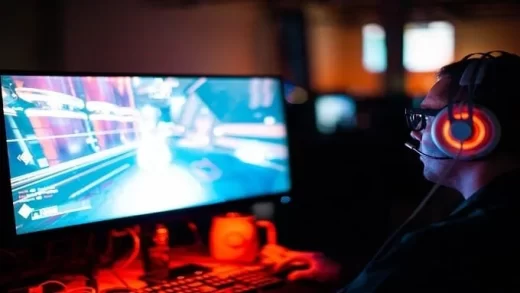Virtual reality (VR) gaming has emerged as one of the most transformative technologies in the gaming industry, offering players an immersive and interactive experience like never before. With VR headsets and advanced motion-tracking systems, players can step into virtual worlds, interact with objects, and engage in thrilling adventures. In this article, we’ll explore the virtual reality gaming revolution, its impact on the gaming landscape, and the exciting possibilities it holds for the future.
The Birth of Virtual Reality Gaming
The concept of virtual reality dates back to the 1960s, but it wasn’t until the late 20th century that VR technology began to make its way into gaming. Early attempts, like the Virtuality arcade machines of the early 1990s, provided a glimpse of what VR gaming could become. However, technological limitations and high costs prevented widespread adoption.
Advancements in VR Technology
In recent years, significant advancements in VR technology have brought the concept of virtual reality gaming closer to reality. High-resolution displays, faster processors, and precise motion tracking have vastly improved the VR experience, reducing motion sickness and latency issues that plagued earlier iterations.
Mainstream VR Headsets
Companies like Oculus (owned by Facebook), HTC, and Sony have introduced consumer-friendly VR headsets, making virtual reality gaming accessible to a wider audience. These headsets offer a range of features, from room-scale tracking to hand controllers, enhancing immersion and interactivity.
The Impact on Gaming
VR gaming has revolutionized the gaming experience by offering players a sense of presence and agency within virtual worlds. From intense first-person shooters to captivating exploration games, VR has reshaped traditional gaming genres and opened doors to new possibilities.
Immersion and Interactivity
The level of immersion in VR gaming is unparalleled. Players can physically duck behind cover, reach out and interact with objects, or use hand gestures to cast spells. This level of interactivity blurs the line between the real and virtual worlds.
New Horizons for Game Design
VR has challenged game developers to think differently about game design. Concepts like spatial puzzles, physical interactions, and locomotion mechanics unique to VR have sparked a wave of creativity and innovation.
The Rise of Esports in VR
The competitive potential of VR gaming is evident in the rise of VR esports. Games like “Echo VR” and “Onward” have developed dedicated esports communities, showcasing the thrilling potential of VR as a spectator sport.
Challenges and Future Prospects
While VR gaming has come a long way, challenges remain. The cost of entry, hardware limitations, and concerns about motion sickness are areas of ongoing improvement. However, as technology continues to evolve, the future of VR gaming looks promising.
Beyond Gaming: VR Applications
Beyond gaming, VR has found applications in various industries. Virtual training simulations, architectural visualization, and medical training are just a few examples of how VR is making a positive impact beyond entertainment.
Conclusion
The virtual reality gaming revolution has transformed the way we experience games, offering an unprecedented level of immersion and interactivity. From the early visions of the past to the accessible and advanced VR headsets of today, the journey of VR gaming has been a testament to human innovation. As technology continues to progress and more developers explore the potential of virtual reality, the gaming landscape is poised for even more thrilling and immersive experiences in the years to come.
FAQs
- What are some popular VR games available today?
Popular VR games include “Beat Saber,” “Half-Life: Alyx,” “Superhot VR,” “Moss,” and “The Walking Dead: Saints & Sinners,” among others. - Do I need a powerful gaming PC to use VR headsets?
Some VR headsets, like the Oculus Quest 2, are standalone and don’t require a PC. However, for more graphically intensive VR experiences, a powerful gaming PC may be necessary for other VR headsets. - What are some potential future applications of VR technology?
VR technology holds potential for applications in education, therapy, virtual tourism, collaborative workspaces, and remote social interactions. - Is VR gaming suitable for all age groups?
While VR gaming can be enjoyed by players of various age groups, it’s essential to consider the age appropriateness of specific VR experiences, as some games may have content not suitable for younger audiences. - Are there any health concerns related to prolonged VR usage?
Prolonged VR usage may lead to motion sickness












